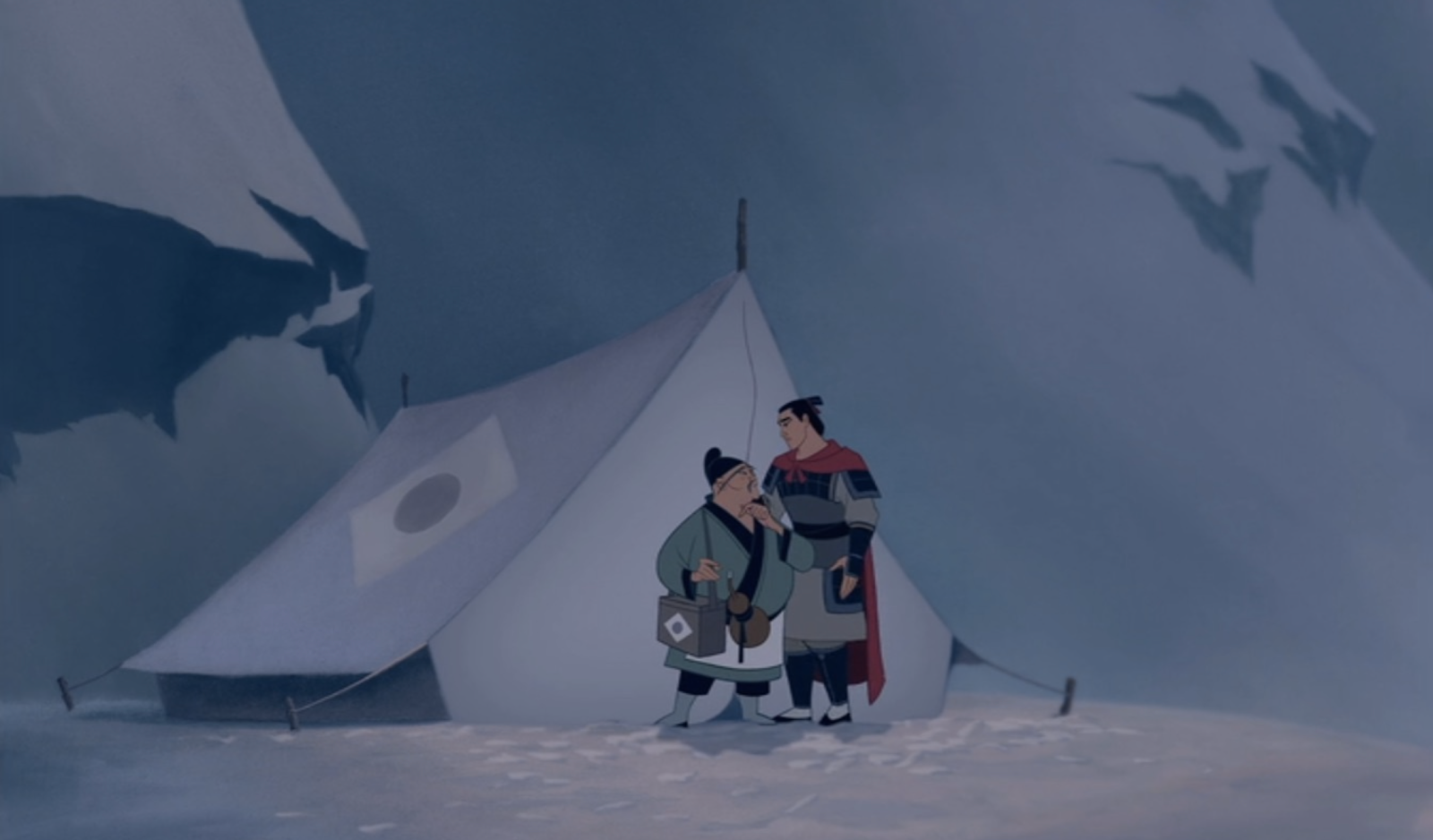This is the third piece in a series on the 2020 remake of “Mulan.” Read the second piece here.
“Mulan” (2020), while ostensibly just another Disney remake, is beginning to seem more like an attempt at societal redemption. From Disney’s missteps in “Mulan” (1998) discussed in previous articles to financial vulnerability during the coronavirus pandemic, “Mulan” (2020) has high expectations to live up to. While some imprecisions in the film may seem like subtle mistakes, issues in the storyline of “Mulan,” especially given its young audience, should be addressed.
While there is reason to be upset over modernly problematic details in the film, it’s important to consider that for “Mulan,” there isn’t much information about the story’s original text — some gaps had to be filled to create a comprehensible story for children.
For instance, a specific discrepancy in the original film is regarding Mulan’s family name. It was changed from what it is commonly known as “Hua” in Chinese households to “Fa” in the film to create a character more comfortable for American audiences.
In the original text, however, Mulan’s family name is not mentioned — she is referred to only as “Mulan.” Here and in other cases like this one, critics must better decipher between whitewashing or racist stereotypical assumptions made by American writers and creative decisions made to form a movie from a 591-word ballad roughly translated from fifth-century Chinese.
There is much to consider in what is appropriate to include in the 2020 remake — which globally speaks for Chinese culture — especially given that it was written by two white women. Even so, it must be noted that Disney has entirely transformed their classic film and moved it away from their main audience, children aged four to 12, to fit cultural criticisms.
Amid these issues within the film, “Mulan” (1998)’s controversial legacy has led its 2020 remake to inherit the responsibility of better representing culture valued by the rest of the world without prioritizing business strategies that humor an American viewership, an ideal seemingly new to Disney.
According to Director Niki Caro, “Mulan” is a legend that has been told for generations in Chinese history. In Disney’s “A Tale of Many” featurette, Caro explains that “Mulan” is based on “The Ballad of Mulan” and represents Chinese culture in a truly pivotal way.
“Every department did deep research to bring the best version of this legendary story to life,” Caro said in an interview with The Movie Times. “The vision for Mulan was to tell the story with an updated vision, obviously, and canvas.”
Jet Li, who plays The Emperor in “Mulan” (2020), also remarked that he enjoyed making the film because of how well it portrays Chinese culture. Endless statements from the cast and crew of “Mulan” (2020) all distinctly illustrate the pressure for Disney’s revisions of the original “Mulan” and their hope that the live-action “Mulan” will compensate for the 1998 version’s misinformed or misguided decisions.
To fulfill such high hopes, it is obvious, as seen in the movie’s trailers, that the rewriting of “Mulan” (2020) was thorough. Regarding Mulan’s love life, the remake does include a romantic interest and retains its matchmaker scenes, but Li Shang himself is absent. Producer Jason Reed explained to Collider that amid the #MeToo movement, it was uncomfortable to have a commanding officer that was simultaneously a sexual love interest of Mulan.
The remake also has cut down on sexism by eliminating Mulan’s grandmother and her lines in the original film dismissing Mulan’s achievements. To be more culturally accurate and less racist, “Mulan” (2020) has humanized Mulan’s enemies, the Huns, now led by Bori Khan instead of Shan Yu. Mushu, although a choice character, was also deemed culturally inaccurate and racist, and was thus removed from “Mulan” (2020). Following the source text even more closely, the film has also revived the characters of Mulan’s siblings, rather than reducing them to a dog named “Little Brother.”
The original “Mulan” is a wonderful film. Although, wonderful films can be made without the practice of cultural appropriation and racism. The Disney-produced story may continue to hold issues, but the revisions in the 2020 remake represent the beginning of Disney’s effort to correct the original movie’s inaccuracies and misrepresentations.
As a company that influences young audiences and the film industry so heavily, Disney’s revisions like those in “Mulan” (2020) have not yet been perfected — but are a progressive, big step forward. Most importantly, they are Disney’s attempt not to dishonor a story that is, quite literally, a legend.
Contact Imogene Tomicic at imogene.tomici ‘at’ gmail.com.
